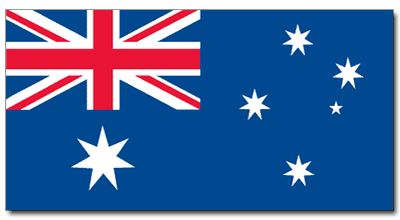Jeremy D. Morley
Australia’s experiment with a presumption of “equal shared parental responsibility” has ended, with passage of the Family Law Amendment Bill 2023.

In 2006 Australia adopted the presumption of equal parenting in order to change the then-prevalent practice of favoring mothers over fathers in custody orders. Although judges had the discretion to give both parents equal decision-making powers, this was not often reflected in practice. In most cases, decisions benefited the resident parent, generally the mother.
The 2006 legislation exemplified the “law of unforeseen consequences.” The presumption that equal shared responsibility was in the best interests of a child meant that judge needed to favorably consider ordering that a child should spend equal time with each parent. But the practical repercussions of the law in respect of hostile broken marriages were not fully envisaged. 50-50 orders meant that young children in particular often lived compartmentalized lives: one set of friends and sometimes a different day care and extra-curricular interests when they lived with one parent; another set when they lived with the other. In cases of parental hostility, this often created even more conflict, with children left in the middle. An Australian bipartisan parliamentary committee found that these provisions were confusing, failed to prioritize the safety of children and were being improperly applied in a way that put children at risk.
The equality presumption had another unexpected consequence. It made it even harder than before for an expat parent in Australia to receive permission to relocate with a child from Australia back to that parent’s country of origin. This appears to have created a surge in international parental child abduction cases out of Australia. It certainly produced great unhappiness and trauma for many expat parents in Australia who found themselves stranded with their children in Australia, far from their home country, family and friends, after their relationship with their Aussie partner ended.
The new law requires that parenting decisions must be based solely on the child’s best interests. Additionally, Independent Children’s Lawyers must now meet directly with children. The legislation also grants expanded powers to safeguard parties and children from the negative impacts of prolonged and adversarial legal battles.
In addition in Hague Abduction Convention cases, the prior Australian rule that Independent Children’s Lawyers should not normally be appointed has been repealed.

Country-by-Country Information About Child Abduction and Divorce
(Click to find your country)
IMPORTANT: WE REQUIRE SPECIFIC INFORMATION ABOUT YOUR SITUATION OR WE WILL NOT BE ABLE TO RESPOND.
POTENTIAL CLIENTS SHOULD NOT SEND ANY CONFIDENTIAL INFORMATION UNTIL SUCH TIME AS AN ATTORNEY-CLIENT RELATIONSHIP HAS BEEN ESTABLISHED BY A WRITTEN RETAINER AGREEMENT SIGNED BY BOTH THE ATTORNEY AND THE CLIENT. SENDING AN EMAIL DOES NOT CREATE AN ATTORNEY-CLIENT RELATIONSHIP OR CONTRACTUALLY OBLIGATE THE LAW OFFICE OF JEREMY D. MORLEY TO REPRESENT YOU, REGARDLESS OF THE CONTENT OF SUCH INQUIRY.
Potential clients should not send any confidential information until such time as an attorney-client relationship has been established by a written retainer agreement signed by both the attorney and the client. Sending an email does not create an attorney-client relationship or contractually obligate The Law Office of Jeremy D. Morley to represent you, regardless of the content of such inquiry.
Copyright © 2025 Jeremy Morley | Website Designed by MozWebMedia